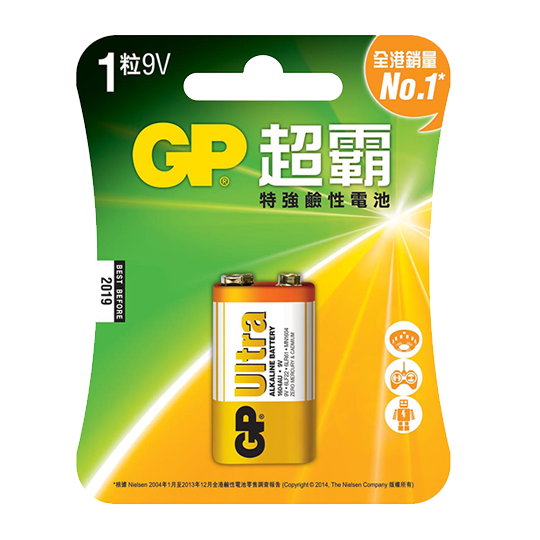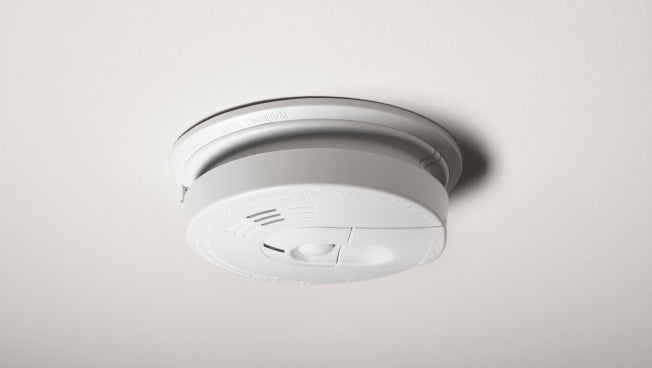There is no place like home — a place of ultimate security and where you and your loved ones feel safe and protected. But accidents are unforeseeable. Fire especially, is the most life-threatening of all disasters and accidents. Being prepared helps to buy you time to escape, evacuate and protect what matters most to you — family and lives. There are many ways to prevent a house fire, utilising a smoke detector is one of the easiest ways and is the best investment for household safety.
Setting up a smoke detector in the past could be such a chore as it required a dedicated licensed contractor for installation. However, here's a good news for those who consider having one at home - The Fire Services Department (FSD) announced “owners/occupants of any buildings/premises will not be required to engage registered fire service installation contractors (RFSICs) for the installation, maintenance, inspection or repair of any stand-alone fire detectors which are installed on the owners/occupants' own volition.” Having a smoke detector, one of the two major types of fire detectors can just be as easy as changing a lightbulb now.

The batteries for your smoke detectors
Smoke detectors are either powered by batteries or household electricity. The stand-alone fire detectors mentioned by the FSD must be self-contained battery-operated. These battery-powered detectors are easier to install and since they remain on duty during a power outage, they are usually more reliable under critical conditions. To ensure your battery-powered smoke detector is operating properly, it is essential to choose the right battery for your appliance. These are the two most common types of battery-powered smoke detector:
10-year sealed battery smoke detector
These detectors are powered by sealed lithium batteries with a life span of 10 years. Pros? You do not have to replace the batteries until the power dies down for 10 years, the detector will fire an end-of-life warning, signalling replacement. The downsides of a 10-year smoke detector are that it is 1-2 times more expensive than a detector with replaceable batteries. Also, when the batteries are weak or the detector malfunctions, the whole device will have to be replaced.
Smoke detector with replaceable batteries
This type of alarm is more affordable and budget-friendly compared with the former one. Most are powered by 9V and AA alkaline batteries, with some exceptions using coin cell batteries. With a wide variety of batteries on the market, it might be confusing to choose the right one for your smoke detector. We have summed up a table below to guide you through picking the perfect battery for your fire-safety device:
(service time upon
installation)
If you are still unsure of which battery to choose, it is advised to pick batteries developed specially for smoke detectors and in compliance with safety standards. GP carbon zinc and alkaline batteries are evaluated and tested for reliability and have obtained the UL217 certification on Safety Smoke Alarm Standard under doc no. UTGT.S3277.
Keep home safe with GP smoke detector batteries

Maintaining and changing your smoke detector batteries
- Test your sensor once a month by pushing the test button (yes! it is easy as that!) to ensure proper operation.
- Wipe and vacuum the detector regularly to get rid of false-alarms-inducing dust.
- Replace the batteries when there is high-pitched chirping noise coming from your smoke detector. It is best to change the batteries before that noise goes off.
- If you have more than one detector in your home, change all the batteries of all detector together.
- If you are using a battery-operated detector, the batteries should be replaced every 6 months - 1 year, or according to the suggested period advised by the smoke detectors’ manufacturer.
- Always handle the batteries properly and responsibly after use. Check out our previous blog to learn more on battery handling tips and the proper way for battery disposal.
- Lastly, aged heat and smoke sensors get less sensitive, make sure to replace it if it is 10 years old.

Regardless of the type of detector you choose, always choose one that complies with international safety standards. With proper maintenance, smoke detector can save lives and prevent potential tragedies. With that being said, we should not let our guard down when it comes to fire hazards – always turn off fire when you are away, do not smoke indoors, and toddlers education is also essential. There is no 100% guarantee that a fire will never occur. By paying attention to fire precautions and equipping with fire-safety devices, it helps to reduce the risk of a home fire and protect what matters most.








